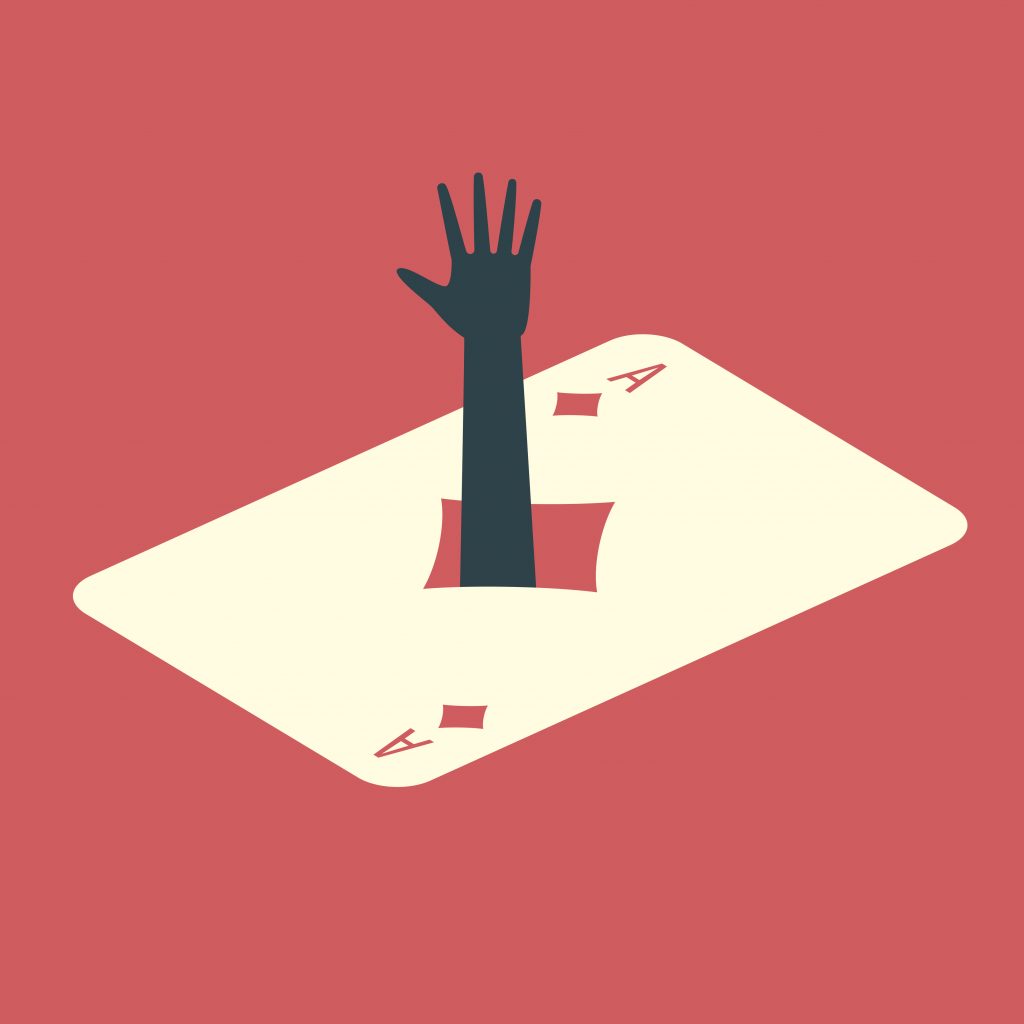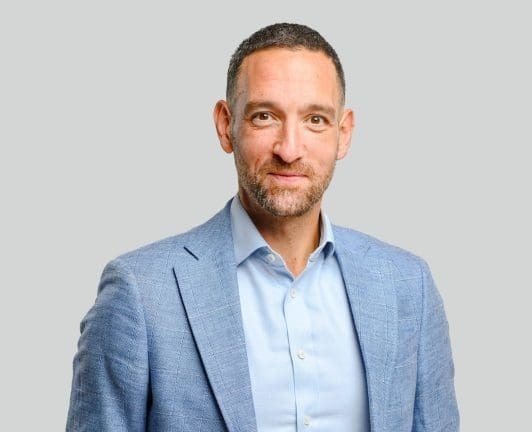Contents
- What is gambling addiction?
- History of gambling addiction
- Official criteria for diagnosing gambling addiction
- Gambling addiction & suicide in the UK
- The signs and symptoms of gambling addiction
- How to help someone with a gambling problem
- Treatment for gambling addiction
- References
Gambling addiction is a compulsive disorder with a high comorbidity rate of alcohol and addiction to other substances. It also presents itself as a stand alone addiction and is common in dual diagnosis 1
Whilst the world is growing more aware of problem gambling, full blown gambling addiction is still misunderstood by many.
You may have become aware of gambling sources now advertising responsible gambling, encouraging gamblers to stick to only what they can afford to bet.
Whilst this is a helpful message to those that are new to gambling, or those that occasionally bet more than they can afford, it is of little use to someone who has a gambling addiction..
Here, Delamere explain in depth what gambling addiction is, why a person with gambling addiction is unable to control their gambling and the signs and symptoms associated with gambling disorders.

What is gambling addiction?
Gambling addiction, also medically referred to as pathological gambling, compulsive gambling and gambling disorder, is a progressive brain disorder that manifests in an inability to control or stop gambling despite negative consequences.
Sufferers of gambling addiction share many similarities with those that suffer from substance addiction in how the disorder affects their life and others around them.
Gambling addiction and alcohol / drug addiction also both hold the same core characteristics, including: loss of control, preoccupation, progression and craving.
Whilst gambling addiction has been recognised for many years in the recovery movement, it is only in more recent years that the medical world have come to accept compulsive gambling as an addiction.
Previously, gambling addiction, also known as pathological gambling, was thought to be an impulse control disorder.
Understanding pathological gambling or compulsive gambling as an addiction, opens up the treatment pathways. Gambling addiction is now more comprehensively and successfully treated as a result.
Gambling disorders, like substance misuse disorders, can be mild, moderate or severe. The more progressed a disorder is, the more it will incapacitate and disrupt the sufferer’s life.
Gambling addiction is sometimes considered to be less serious than a drug or alcohol addiction by those that do not fully understand it. The truth is that gambling addiction, like any addiction, has the power to kill.
Many gambling addicts tragically feel driven to take their own life, rather than face the reality of the chaos their illness creates and seek the appropriate addiction help and treatment.

Call us confidentially at any time to speak to a member of our team.
Call us now: 0330 111 2015
History of gambling addiction
In 1980, pathological gambling was added to the DSM III. The DSM (Diagnostic and Statistical Manual of Mental disorders) is a diagnostic handbook used by clinicians around the world to diagnose psychiatric health disorders and illnesses.
When pathological gambling was first added to the DSM, the diagnostic criteria had not previously been tested, they were based on Dr Robert Custer’s (a gambling treatment specialist) and other treatment professionals clinical experience of the disease 2
Originally pathological gambling was classified in the DSM III as an impulse control disorder with a limited criteria for diagnosis. Thanks to research and a more comprehensive understanding, pathological gambling has now been reclassified under the section ‘addictive disorders’ in the most recent version of the manual, the DSM-5.
The original criteria for diagnosing pathological gambling disorder included a statement about the sufferer experiencing a progressive loss of control, seven items relating to the damage and impact pathological gambling causes and an emphasis on the disruption to a suffers financial, vocational, personal and family pursuits.
The criteria for pathological gambling revised in the DSM-IV, now has an emphasis on the similarities to substance dependence disorders. Additions to the criteria were also added, including “repeated unsuccessful attempts to control, cut back or stop gambling”. This particular addition focuses on relapse as a diagnostic characteristic of the disorder 3
Today pathological gambling is commonly recognised as gambling addiction, holding the same core mental, social and occupational characteristics as other addictive disorders.
As such, the addiction treatment world is far better equipped to treat gambling addiction than mental health professionals alone.
Gambling addiction has been found to respond well to the same evidence based treatment methods that successfully treat substance misuse addictions and other process addictions.
Official criteria for diagnosing gambling addiction
The set of criteria detailed within the DSM-5 for medical professionals to use as a diagnostic tool for gambling addiction now enables an accurate diagnosis.
Once a professional diagnosis has been made, the appropriate treatment can then be offered so that the affected person can commence their recovery journey
To be diagnosed with a gambling disorder, an individual must meet at least 5 of the 10 criteria set out within the DSM-5. All criteria hold the same weight in terms of their seriousness. The more criteria a person identifies with, the more progressed their addiction.
DSM-IV DIAGNOSTIC CRITERIA FOR GAMBLING DISORDERS
- A preoccupation with gambling (e.g, preoccupation with reliving past gambling experiences, handicapping or thinking of ways to get money with which to gamble)
- A need to gamble with increasing amounts of money in order to achieve the desired level of excitement (tolerance & progression)
- Repeated, unsuccessful efforts to control, cut back or stop gambling (relapse & loss of control)
- Feels restless or irritable when attempting to cut down or stop gambling (withdrawal symptoms & craving)
- Uses gambling as a way of escaping from problems or of relieving a dysphoric mood (e.g., feelings of hopelessness, guilt, anxiety and depression)
- After losing money gambling, often returns another day to get even (“chasing” one’s losses)
- Lies to family members, therapist or others to conceal the extent of one’s involvement with gambling
- Has committed illegal acts such as forgery, fraud, theft or embezzlement to finance gambling
- Has jeopardised or lost a significant relationship, job or educational or career opportunity because of gambling
- Relies on others to provide money to relieve a desperate financial situation caused by gambling
If you are concerned about your own gambling or are worried about someone you love, gaining a correct diagnosis is crucial to accessing the correct treatment for recovery. Call our experts at Delamere for a free and confidential assessment of your treatment needs.
Gambling addiction & suicide in the UK
Problem gamblers have a particularly high incidence of attempted suicide, even when compared to other mental health illnesses.
Research shows that one third of all problem gamblers seeking treatment for gambling in the UK (2019) had experienced suicidal thoughts.
It has also been found that out of all of the suicides in the UK – 5% had a known problem with gambling.
This percentage increases when gambling addiction is accompanied by a substance abuse problem 4
Gambling addiction is well known for causing catastrophic financial problems, it also affects far more men than it does women.
Problem gamblers and at-risk gamblers were more likely to be:
✓ Male;
✓ younger (under 35);
✓ single;
✓ and living in rented accommodation;
✓ and less likely to have higher levels of educational
qualifications 4
Men often see mental health illness and addiction disorders as a personal failure and they find it very hard to ask for help. Sadly, and much to our frustration, there is still a stigma attached to addiction, as there is to suicide and suicidal feelings. This unhelpful and rather ignorant perception inflicted by society, stops many people from talking and prevents them from seeking the life saving treatment they so desperately need.
Gambling addiction can leave a person feeling extremely isolated and suffering from a tremendous amount of fear, guilt and shame. This can lead to clinical depression and a hopelessness that makes them want to take their own life.
Of course, this is not the only way out of a gambling addiction, we are Delamere know this far better than most. This is why we have developed a treatment programme for gambling addiction that is not only transformative but is also very sustainable and accessible.
No matter how desperate your personal situation may seem, you can recover! We at Delamere have helped countless ‘hopeless’ individuals to make a full and lasting recovery; enabling them to recreate their lives and feel content and peaceful within.
The signs and symptoms of gambling addiction
Recognising the signs and symptoms of gambling addiction can be a pivotal point for someone suffering. It is common to mistake a gambling disorder purely for a problem with self-control. The reality is that gambling addiction is far more complex than this; it has many aspects to it that require professional and ongoing treatment.
Signs and symptoms of gambling addiction include:
- Preoccupation with gambling – Continually thinking about or planning the next gamble
- Tolerance to gambling – No longer feeling ‘high’ or euphoric using the same gambling methods that used to produce these feeling
- Progression – Taking bigger risks, gambling more frequently & incurring more serious consequences as a result of gambling addiction progressing over time
- Loss of control around gambling – Unable to reduce or moderate gambling despite numerous attempts and methods to do so. Unable to control when, where and for how long gambling takes place
- Relapse – Abstaining for a period of time after a big loss or consequence, only to return to gambling with the same loss of control or even more progressed loss of control
- Continuation despite negative consequences – Having very good reasons to quit gambling such as financial debt, loss of job/relationships, difficulties in the home, occupational problems, mental health problems, committing crime and being caught…the list of gambling consequences is infinite. Yet despite this, still continuing to gamble and not being able to stop.
- Dishonesty around gambling – Attempting to hide the extent of gambling or lying about the extent and consequences
- Craving – When unable to gamble, experiencing cravings for gambling that manifest in a great desire or need to gamble
- Withdrawal – Feeling irritable, restless, dissatisfied and depressed when unable to gamble
If you or a loved one identify with one or more of the above signs and symptoms of gambling addiction, then you have a problem that requires help.
The more symptoms of a gambling disorder you relate to, the more serious your condition.
Gambling addiction, if left untreated, only ever gets progressively worse. Intervening early in a gambling addiction and seeking treatment will save a lot of unnecessary pain, misery and loss.
How to help someone with a gambling problem
If you have a loved one, family member or friend that has a gambling problem, you may be asking yourself what you can do to help.
Knowing or loving a problem gambler can be very painful. You are likely to feel at a loss as to how to help them and feel powerless to prevent them from destroying their life.
Gambling addiction can cause a great deal of suffering within a family. The gambling addicts consequences often affect their family and loved ones financial security and their trust.
It is common to question why a gambling addict continues to gamble despite the consequences inflicted to others and themself. To someone who does not suffer from addiction, gambling addiction makes no rational sense.
Often, a person who has a gambling addiction will also have little understanding as to why they continue to repeat the same behaviours and mistakes over and over again.
Helping a gambling addict to understand that they are very unwell and suffer from a brain disorder may be enough for them to accept they need treatment. This is not a problem they can solve by themself, nor will it go away of its own accord.
A person afflicted is not at fault for developing a gambling addiction, they are however 100% responsible for accessing sustainable recovery.
When trying to get a family member or partner to seek help for gambling, it is important to ensure that you are not inadvertently enabling their addiction. Whilst they have you to fall back on financially and emotionally they are unlikely to want to stop.
Preventing a gambling addict from feeling the consequences of their addictive behaviour is considered enabling. Whilst consequences alone won’t stop a gambling addict, they may bring them to a place where they are willing to accept professional help.
When speaking to a gambling addict about the subject of treatment, if they are not willing, the withdrawal of your financial and emotional support can be enough for them to realise what they stand to lose.
It is important for both you and the addict who suffers to understand just how deadly their addiction is. There is no cure for addiction but recovery is possible and can be maintained.
If you would like your family member or loved one to undergo gambling addiction treatment with us here at Delamere, please contact us directly. We will be happy to help wherever possible and speak to your loved one about how we can help ensure they stop gambling and reclaim their life.
Treatment for gambling addiction
At Delamere’s addiction treatment and behavioural wellness facility we treat gambling addiction comprehensively.
Using a combination of traditional evidence based medicine, combined with cutting edge holistic healing treatments, we treat each guest individually and as a whole person.

All of our bespoke treatments are designed to heal physically, mentally, emotionally and socially. We also treat the spirit of the person, giving each of our guests a true sense of purpose and reigniting their passion for life.
Delamere are extremely dedicated to delivering the highest standards of treatment and care. Not only do we ensure this during the inpatient treatment process but also in the support we offer during the transition period back into society.
For immediate help with a gambling problem, or for more information on our gambling rehabilitation programmes, please contact our addiction experts here at Delamere today.
References:
- Kessler RC, Hwang I, LaBrie R, et al. DSM-IV pathological gambling in the National Comorbidity SurveyReplication. Psychol Med. Sep 2008;38(9):1351-1360.
- National Research Council. Pathological Gambling: A Critical Review. Washington, D.C.: National Academy Press; 1999.
- Gerstein D, Murphy S, Toce M, et al. Gambling Impact and Behaviour Study: Report to the National Gambling Impact Study Commission. Chicago: National Opinion Research Center;1999.
- Gambling Commission Government Website






